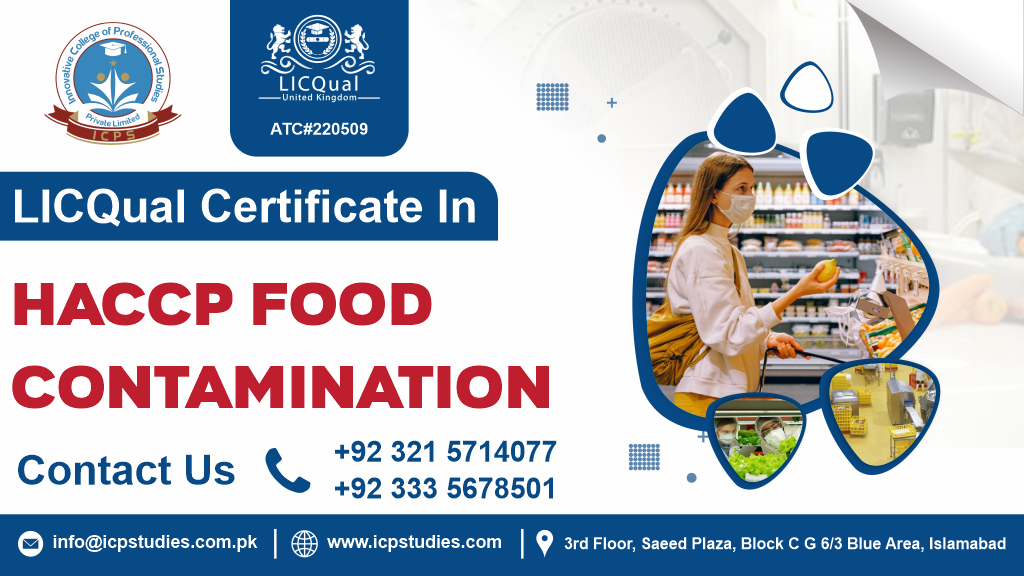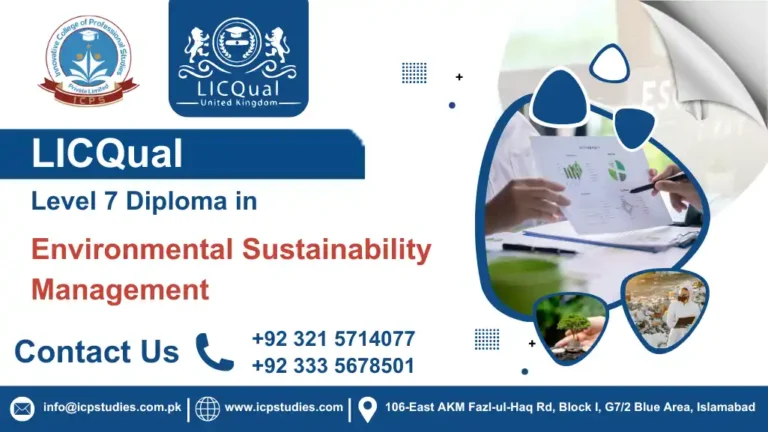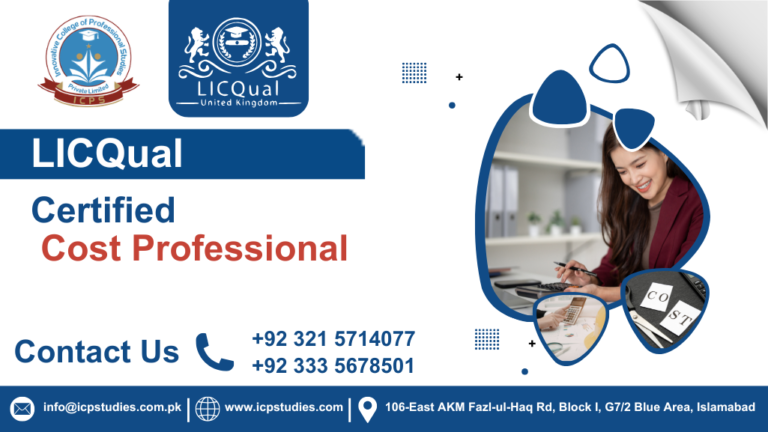Food safety is a critical concern in today’s globalized world, where the journey from farm to fork spans continents and involves numerous stages. To safeguard public health, it’s essential to manage and control potential hazards at every step of the food supply chain. One of the most effective tools for achieving this is the Hazard Analysis and Critical Control Points (HACCP) system. A Certificate in HACCP Food Contamination is a valuable credential for professionals seeking to ensure the highest standards of food safety.
A Certificate in HACCP Food Contamination is an essential credential for professionals dedicated to ensuring food safety. By equipping individuals with the knowledge and skills to implement HACCP systems, this certification helps protect public health, enhances consumer confidence, and supports regulatory compliance. Whether you are looking to advance your career or ensure the highest standards of food safety in your organization, obtaining a HACCP certification is a smart investment in your professional development and the well-being of consumers worldwide.
All About Certificate in HACCP Food Contamination
Course Overview
A Certificate in HACCP Food Contamination is a professional credential that signifies an individual’s proficiency in understanding and implementing the Hazard Analysis and Critical Control Points (HACCP) system to manage food safety hazards. This certification is crucial for ensuring food safety across the entire food supply chain, from production to consumption.
A Certificate in HACCP Food Contamination is a valuable credential for professionals dedicated to ensuring food safety. By certifying expertise in HACCP principles and practices, it plays a vital role in protecting public health, enhancing consumer confidence, and supporting regulatory compliance in the food industry.
Study Units
- Introduction to HACCP and Food Safety Management
- Identifying Food Contamination Hazards
- Principles of HACCP Plan Development
- Establishing Critical Control Points (CCPs)
- Implementing HACCP Plans in Food Production
- Monitoring, Verification, and Record-Keeping
- Handling HACCP Non-Conformities and Corrective Actions
Entry Requirements
- Age Requirement: Candidates should be at least 16 years old.
- Professional Background: Relevant experience in the food industry or related sectors is preferred but not mandatory.
- Educational Qualifications: There are generally no formal educational prerequisites, making the course accessible to individuals from various backgrounds.
- Basic Knowledge of Food Safety: Familiarity with basic food safety concepts, such as hygiene practices and types of contamination, is beneficial.
- Communication Skills: Strong verbal and written communication skills are necessary for understanding course materials and participating in discussions.
- Interest in Food Safety: A genuine interest in learning about food contamination and safety management is important.
- Basic IT Skills: Familiarity with using IT tools for documentation may be helpful but is not mandatory.
These requirements may vary by training provider, so it’s advisable to check with the specific institution offering the Certificate in HACCP Food Contamination for their exact criteria.
The Certificate in HACCP Food Contamination is designed for:
- Food Industry Professionals: Individuals working in food production, processing, and distribution who need to understand contamination risks and prevention.
- Quality Assurance Personnel: Staff responsible for ensuring compliance with food safety standards and managing contamination risks.
- Supervisors and Managers: Leaders overseeing food operations who need to implement effective contamination control measures.
- Catering and Hospitality Staff: Employees in restaurants, hotels, and catering services who handle food and require knowledge of contamination prevention.
- Food Safety Inspectors: Professionals assessing food safety practices and ensuring regulatory compliance in food establishments.
- Food Technologists: Individuals involved in developing and maintaining food safety protocols in product development.
- New Employees in Food-Related Roles: Those entering the food industry who need foundational knowledge of food contamination issues.
- Anyone Interested in Food Safety: Individuals looking to enhance their understanding of HACCP principles related to food contamination.
This course is ideal for anyone seeking to develop a comprehensive understanding of food contamination risks and the principles of HACCP to improve food safety practices.
Learning Outcomes
The Certificate in HACCP Food Contamination is designed for a diverse range of professionals and students in the food industry who are dedicated to ensuring food safety and quality. This course is particularly beneficial for:
Quality Assurance Managers
- Role: Oversee the quality and safety of food products throughout the production process.
- Benefits: Enhance your ability to develop, implement, and manage HACCP systems, ensuring compliance with food safety regulations and standards.
Food Safety Auditors
- Role: Conduct audits to ensure food production facilities adhere to safety standards and regulations.
- Benefits: Gain in-depth knowledge of HACCP principles and practices, enabling you to perform more thorough and effective audits.
Production Supervisors
- Role: Manage daily operations in food production environments, ensuring processes run smoothly and safely.
- Benefits: Equip yourself with the skills to identify and control potential hazards, ensuring the safety and quality of food products.
Food Service Managers
- Role: Oversee the operation of food service establishments, including restaurants, cafeterias, and catering services.
- Benefits: Learn how to implement and monitor HACCP plans in food service settings, improving overall food safety and customer satisfaction.
Regulatory Affairs Specialists
- Role: Ensure that food products comply with all relevant laws and regulations.
- Benefits: Develop a comprehensive understanding of HACCP systems, aiding in the development of policies and procedures that meet regulatory requirements.
Food Scientists and Technologists
- Role: Research and develop new food products and processes, focusing on safety, quality, and efficiency.
- Benefits: Enhance your ability to design safe food production processes and contribute to the development of innovative, safe food products.
Food Production Workers
- Role: Work directly in the food production process, handling, processing, and packaging food products.
- Benefits: Gain valuable knowledge and skills to recognize and address potential food safety hazards in your daily work.
Students and Recent Graduates
- Role: Individuals studying or recently graduated in food science, microbiology, nutrition, or related fields.
- Benefits: Strengthen your resume with a specialized certification, improving your employment prospects in the food industry.
Small Business Owners
- Role: Owners of small food businesses such as bakeries, cafes, and local food producers.
- Benefits: Learn how to implement effective food safety management systems, ensuring the safety and quality of your products and protecting your business from potential hazards.
Health Inspectors and Public Health Officials
- Role: Inspect food establishments and enforce health and safety regulations.
- Benefits: Acquire a deeper understanding of HACCP systems, enhancing your ability to assess compliance and recommend improvements.
Conclusion
The Certificate in HACCP Food Contamination is ideal for anyone involved in the food industry who is committed to ensuring the highest standards of food safety. Whether you are a seasoned professional looking to deepen your expertise or a newcomer seeking to build a foundation in food safety management, this course provides the essential knowledge and skills to excel in your role and contribute to safer food production practices.
FAQs about Certificate in HACCP Food Contamination







